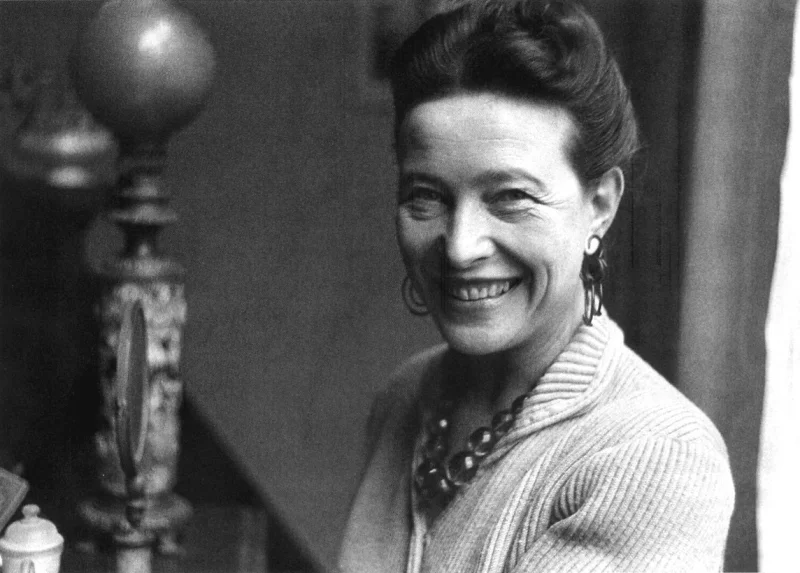Short Summary
Simone de Beauvoir was a renowned French writer, philosopher, and feminist whose work has had a profound influence on feminist theory and existentialism. She is best known for her groundbreaking book "The Second Sex," which examined the oppression of women and laid the foundation for modern feminist thought. Her partnership with Jean-Paul Sartre was both personal and intellectual, contributing significantly to existentialist philosophy. De Beauvoir's contributions to literature, philosophy, and feminism have cemented her status as a pivotal figure in the 20th century.
Early Life & Education
Simone de Beauvoir was born on January 9, 1908, in Paris, France, to Georges de Beauvoir, a legal secretary, and Françoise Brasseur, a devout Catholic. Raised in a bourgeois environment, she was encouraged to pursue education from an early age. Despite financial difficulties after World War I, her family prioritized her education, allowing her to attend prestigious institutions. She studied mathematics and philosophy at the Institut Catholique de Paris and literature and languages at the Institut Sainte-Marie. De Beauvoir excelled academically, ultimately earning a degree in philosophy from the Sorbonne, where she was deeply influenced by philosophers such as René Descartes and Henri Bergson.
Career Highlights
Simone de Beauvoir began her career as a teacher, but her passion for writing and philosophy soon took precedence. In 1949, she published "The Second Sex," a pioneering work that challenged traditional notions of femininity and explored the historical subjugation of women. Her partnership with Jean-Paul Sartre was instrumental in shaping existentialist philosophy, and together they explored themes of freedom, responsibility, and the human condition. De Beauvoir's literary career also flourished with novels such as "She Came to Stay" and "The Mandarins," the latter winning the prestigious Prix Goncourt in 1954. Her work as a feminist activist further distinguished her career, making significant contributions to women's rights movements.
Major Achievements
- Published "The Second Sex," a foundational text in feminist philosophy.
- Received the Prix Goncourt for her novel "The Mandarins" in 1954.
- Co-founded the French feminist journal "Les Temps Modernes."
- Contributed significantly to existentialist philosophy alongside Jean-Paul Sartre.
- Active participant in the women's liberation movement in France.
Famous Quotes
- "One is not born, but rather becomes, a woman."
- "Change your life today. Don't gamble on the future, act now, without delay."
Interesting Facts
- She was the youngest person ever to pass the agrégation in philosophy in France.
- Her relationship with Jean-Paul Sartre was open and unconventional, challenging societal norms.
- She traveled extensively, documenting her experiences in travelogues.
- She was a vocal advocate for abortion rights in France.
- Her personal diaries and letters have been published posthumously, providing insight into her private life.
Legacy / Influence
Simone de Beauvoir's work has had a lasting impact on feminist theory, existentialist philosophy, and literature. Her exploration of gender and identity in "The Second Sex" continues to be a seminal text in women's studies and feminist discourse. Her ability to synthesize philosophical thought with social issues has inspired countless scholars and activists, and her legacy endures as a symbol of intellectual courage and feminist advocacy.
FAQ
Q: Why is Simone de Beauvoir famous?
A: She is famous for her influential work in feminist philosophy, particularly her book "The Second Sex," and her contributions to existentialism.
Q: What is "The Second Sex" about?
A: It examines the historical and social oppression of women and challenges traditional gender roles.
Q: Was Simone de Beauvoir married?
A: No, she was not married, but she had a lifelong partnership with Jean-Paul Sartre.
Q: What is her connection to existentialism?
A: Alongside Jean-Paul Sartre, she played a significant role in developing existentialist philosophy, focusing on themes of freedom and responsibility.









